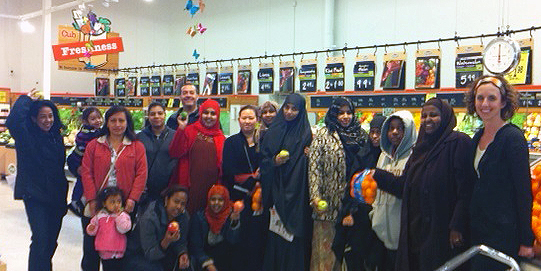Could you feed four on just $10 and one in store coupon? Sound like a piece of cake? How about including at least one item from each of the five food groups with the same amount?
Welcome to the $10 grocery challenge!
Our first group of parents to participate in the challenge successfully accomplished just that last night with the help of Family Educator, Collette. Collette is one of six Family Educators who will lead at least one grocery tour this month with the goal of increasing access to and awareness of healthy living. “By starting with parent education, we’ll see a definite trickle-down effect. Not only can those parents lead and inform others in their own families and in their communities, but their children pick up on those healthy habits as well. We want our kids to be healthy. When they don’t have healthy diets, they really aren’t ready for school,” Collette explains.
The grocery tours are not only a part of Way to Grow’s holistic approach, but are completed in conjunction with our six-week Cooking Matters program led in partnership with the University of Minnesota Extension Services and funded by Cargill. Another Cooking Matters series kicks off tomorrow. We’re excited to give more parents and families the opportunity to learn to cook healthy meals together, one plate at a time.



 In week five of Way to Grow’s six week
In week five of Way to Grow’s six week 